Exploring the new frontier of crypto collectibles in the gaming industry
Blur: NFT | Blur: NFT login | Blur: NFT connect | WalletConnect | Traders | What Is Blur Crypto

Blur: NFT | Blur: NFT login | Blur: NFT connect | WalletConnect | Traders | What Is Blur Crypto
In recent years, the world of gaming has witnessed a revolutionary new trend with the emergence of Non-Fungible Tokens (NFTs). These unique digital assets are built on blockchain technology, allowing gamers to buy, sell, and own virtual items, characters, and land within their favorite games. The fusion of NFTs and gaming has created an unprecedented opportunity for gamers, developers, and investors alike.
Unlike traditional in-game items, NFTs are one-of-a-kind and cannot be replicated or destroyed. Each NFT has its own distinct attributes and provenance, making it a truly unique digital collectible. These collectibles can range from rare weapons and armor, to virtual real estate and even playable characters. The ownership of NFTs is verified and recorded on the blockchain, providing a secure and transparent way for gamers to trade and showcase their prized possessions.
The integration of NFTs into the gaming industry has opened up new avenues for monetization and player engagement. Gamers can now buy and sell virtual items directly from other players or game developers, creating a decentralized marketplace that bypasses traditional intermediaries. This peer-to-peer trading system allows gamers to truly own their in-game assets, as they can transfer and trade them across different games and platforms.
Furthermore, NFTs have the potential to transform the concept of ownership in the gaming world. Previously, players would invest time and money into acquiring in-game assets that were ultimately owned and controlled by the game developers. With NFTs, players have the power to truly own their virtual possessions and retain their value outside of the game environment. This has sparked a phenomenon known as "Play to Earn," where players can earn real-world income by playing games and selling valuable NFTs.
The emergence of NFTs and the adoption of blockchain technology in the gaming industry is still in its early stages, but the potential for growth and innovation is undeniable. As more developers and gamers recognize the value of NFTs, we can expect to see an even more vibrant and immersive gaming landscape, where players have the freedom to buy, sell, and create their own digital universes. The fusion of NFTs and gaming is reshaping the way we interact with virtual worlds and unlocking a new era of possibilities.
NFTs and Gaming: The Emerging Landscape of Crypto Collectibles in the Gaming Industry
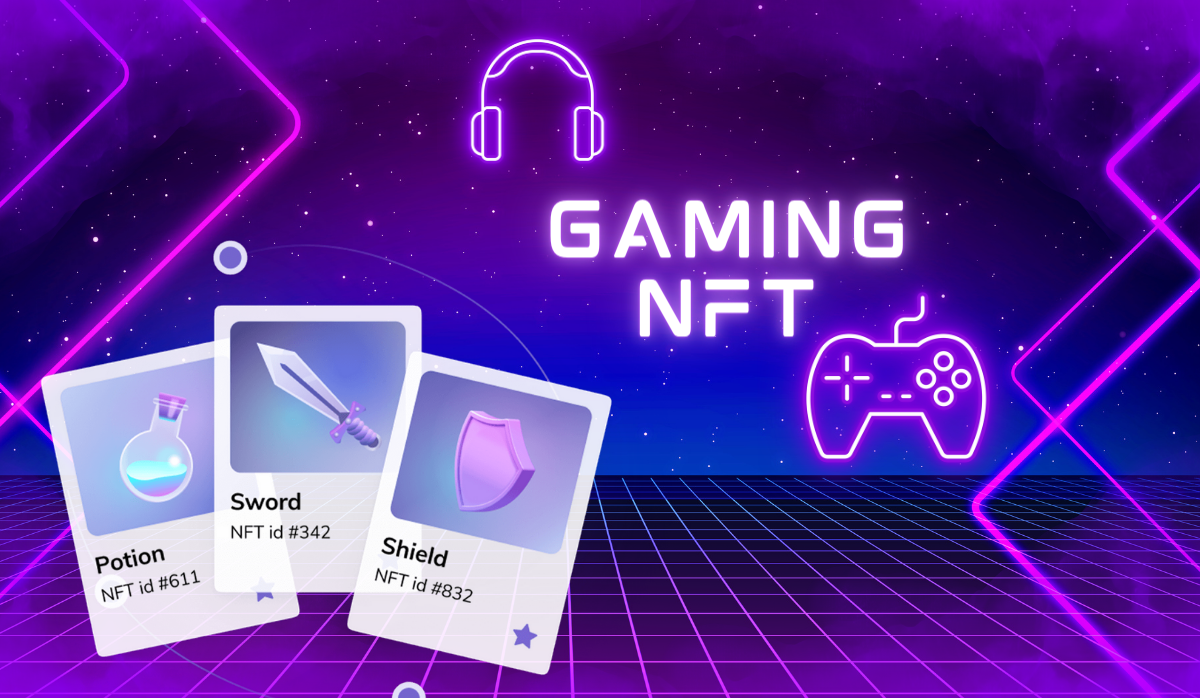
NFTs, or Non-Fungible Tokens, have become a hot topic in the gaming industry in recent years. These blockchain-based digital assets have the potential to revolutionize the way we think about and interact with digital collectibles.
In the gaming world, NFTs can be used to create unique and verifiable in-game items that can be bought, sold, and traded on various cryptocurrency marketplaces. This opens up a whole new world of possibilities for gamers, who can now truly own and control their digital assets.
One of the main benefits of using NFTs in gaming is the concept of true ownership. Unlike traditional in-game items, which are usually owned and controlled by the game developer, NFTs give players full ownership of their digital assets. This means that gamers can buy, sell, and trade their items without any restrictions.
But NFTs are more than just a way for gamers to trade digital items. They also have the potential to create new revenue streams for game developers. By creating limited-edition NFTs, developers can generate additional income and incentivize players to spend more time and money in their games.
True ownership of in-game items
New revenue streams for developers
Increased player engagement and retention
Marketplace for buying, selling, and trading items
NFTs also have the potential to create a more immersive gaming experience. With the ability to truly own and customize their in-game items, players can create unique characters and avatars that reflect their individuality and personality. This can lead to increased player engagement and retention, as gamers become more invested in their virtual identities.
As the popularity of NFTs continues to grow, we can expect to see more game developers embracing this technology and integrating it into their games. This will create a new landscape of crypto collectibles in the gaming industry, giving players more opportunities to own, trade, and interact with digital assets.
In conclusion, NFTs are revolutionizing the gaming industry by allowing players to truly own and control their in-game items. They offer benefits such as true ownership, new revenue streams for developers, increased player engagement, and a marketplace for trading items. As the industry evolves, we can expect to see even more innovative uses of NFTs in gaming.
What are NFTs?
NFTs, or Non-Fungible Tokens, have become a hot topic in the world of blockchain and digital art. But what exactly are NFTs and why are they gaining so much attention?
An NFT is a unique digital asset that represents ownership or proof of authenticity of a specific item or piece of content, such as artwork, music, virtual real estate, or even in-game items. Unlike cryptocurrencies like Bitcoin or Ethereum, which are fungible and can be exchanged on a like-for-like basis, NFTs are indivisible and unique. Each NFT has its own distinct value and cannot be substituted for another.
One of the main advantages of NFTs is their ability to address the problem of digital scarcity. In the past, digital files could be easily copied and shared, making it difficult for creators to monetize their work. However, with NFTs, artists and creators can prove ownership and sell their digital creations without fear of duplication.
Another key feature of NFTs is their ability to be bought, sold, and traded on various marketplaces. There are several NFT marketplaces available where users can list their NFTs for sale or bid on existing ones, such as Blur Crypto. These marketplaces provide a platform for artists, collectors, and enthusiasts to interact, creating a vibrant economy around digital collectibles.
The popularity of NFTs has extended beyond the art world and into the gaming industry. Gaming companies are now exploring the potential of NFTs to create rare and unique in-game items that can be bought, sold, and traded among players. This opens up new possibilities for gamers to truly own their virtual assets and potentially monetize their gaming achievements.
While NFTs offer exciting opportunities in terms of ownership and value creation, there are also challenges and concerns surrounding their environmental impact and the potential for fraud. As the landscape of NFTs and gaming continues to evolve, it will be important for industry players to address these issues and find sustainable solutions.
Key Takeaways
NFTs are unique digital assets that represent ownership or proof of authenticity of a specific item.
NFTs address the problem of digital scarcity and allow creators to monetize their digital work.
NFTs can be bought, sold, and traded on various marketplaces like Blur Crypto.
Gaming companies are exploring the use of NFTs to create rare and unique in-game items.
Challenges include environmental impact and potential fraud.
The Rise of Crypto Collectibles
In recent years, the gaming industry has witnessed a revolutionary trend known as crypto collectibles. These digital assets, also referred to as non-fungible tokens (NFTs), have gained tremendous popularity and have opened up a new world of possibilities for gamers and collectors alike.
Crypto collectibles are unique tokens that are built on blockchain technology. Each token represents a one-of-a-kind item or character within a game or virtual world. Unlike traditional in-game items, these collectibles cannot be replicated or forged, making them rare and valuable.
How it works
The concept behind crypto collectibles is simple yet groundbreaking. Each collectible is assigned a unique identifier, which is stored on the blockchain. This ensures that the token's ownership and attributes are transparent, traceable, and tamper-proof.
With the rise of decentralized marketplaces and platforms, players can now buy, sell, and trade their crypto collectibles with ease. These marketplaces utilize smart contracts to automate transactions, ensuring a secure and transparent ecosystem for collectors and gamers.
The impact on the gaming industry

Crypto collectibles have had a profound impact on the gaming industry, transforming the way players interact with games and virtual worlds. They have introduced a new level of ownership and scarcity, bridging the gap between the virtual and physical world.
Not only do crypto collectibles allow players to truly own their digital assets, but they also provide opportunities for creators and developers. By tokenizing their creations, developers can monetize their content and build sustainable economies within their games.
1. Ownership and Authenticity
2. Interoperability and Cross-platform Trading
3. Community Engagement and Collaboration
4. New Revenue Streams
Overall, the rise of crypto collectibles has brought a new dimension to the gaming industry, allowing players to truly own and trade their virtual assets. As blockchain technology continues to evolve, we can only expect to see further innovation and integration of crypto collectibles in games.
The Integration of NFTs and Gaming
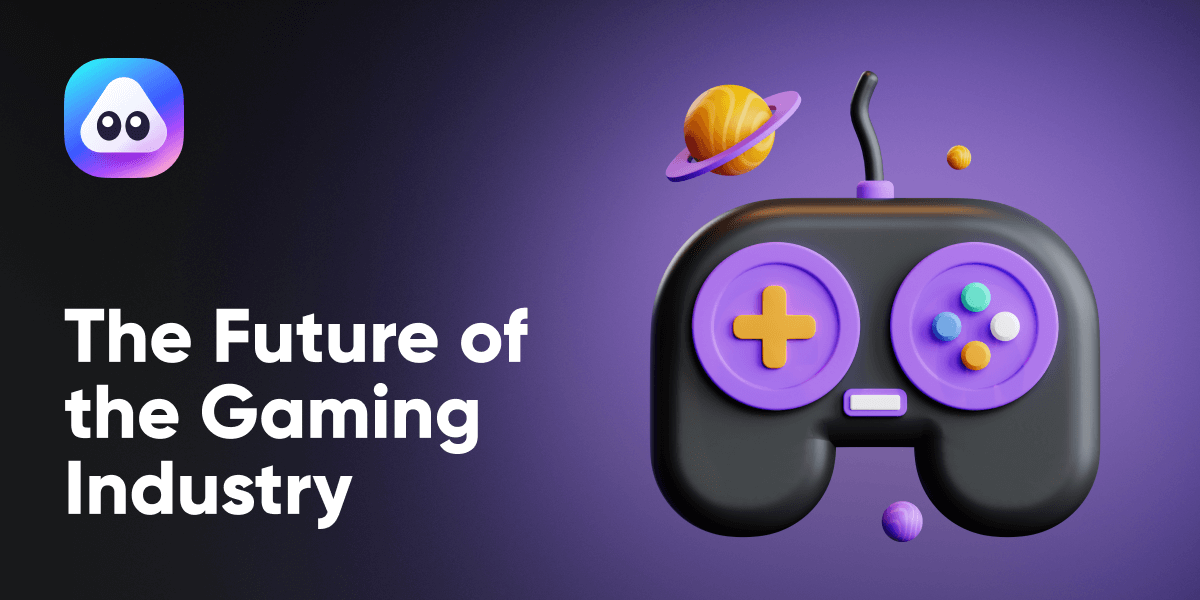
NFTs, or non-fungible tokens, have quickly gained popularity in the gaming industry as a means of enhancing the player experience and providing unique digital assets. These tokens are built on blockchain technology, which ensures their authenticity, scarcity, and ownership.
With the integration of NFTs, gaming platforms are revolutionizing the way players interact with virtual assets. Previously, gamers would acquire items such as skins, weapons, or in-game currency that were non-transferable and locked within the game. However, NFTs enable players to truly own their in-game assets by representing them as unique tokens that can be bought, sold, and traded outside the game environment.
One of the significant advantages of integrating NFTs into gaming is the potential for players to earn real-world value from their in-game activities. For example, players can create and sell unique in-game items or characters, which can be traded on various NFT marketplaces. This allows gamers to monetize their skills and investments in the virtual world.
Additionally, the use of NFTs provides increased transparency and authenticity in the gaming industry. Each NFT is linked to a specific asset and contains information about its origin, rarity, and previous ownership. This ensures that players can trust the value and history of the digital assets they acquire, reducing the risk of fraud or counterfeit items.
The Future of NFTs in Gaming
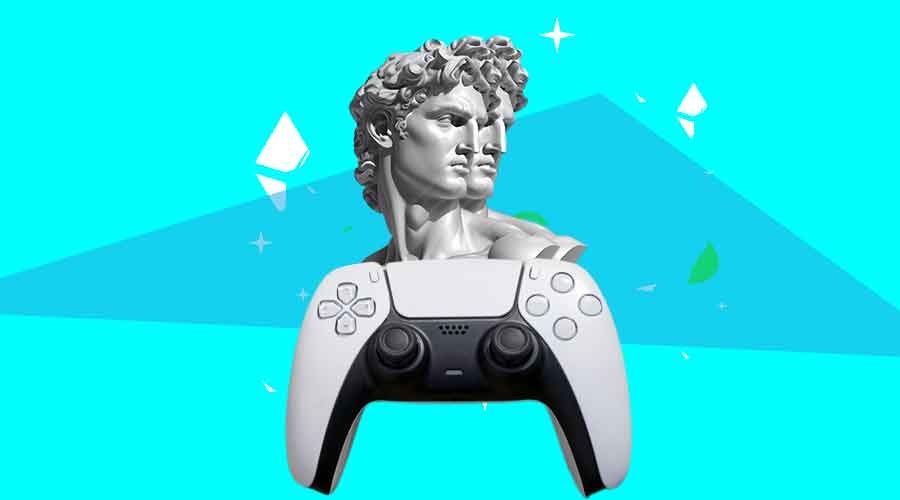
As the integration of NFTs and gaming continues to evolve, we can expect to see even more innovative use cases and opportunities for players. For instance, developers can create NFTs that unlock exclusive content or experiences within a game, encouraging player engagement and loyalty.
Moreover, NFTs can enable players to transfer their assets seamlessly between different games or platforms, creating a metaverse where virtual items have interoperability and value beyond any single game. This opens up possibilities for cross-game collaborations and interactions, allowing players to use their NFTs in various virtual worlds.
However, there are still challenges to overcome in the integration of NFTs and gaming. Scalability, energy consumption, and the environmental impact of blockchain technology are areas that require further development and optimization. Additionally, regulations and legal frameworks surrounding NFTs may need to be clarified to ensure the protection of players' rights and interests.
In conclusion, the integration of NFTs and gaming has the potential to revolutionize the industry by enabling true ownership, value creation, and enhanced player experiences. As technology advances and these challenges are addressed, we can expect to see even more exciting developments in the intersection of NFTs and gaming.
Benefits for Gamers
Gaming has always been a popular pastime, but the introduction of NFTs and crypto collectibles has added a new dimension to the gaming experience. Here are some key benefits that gamers can enjoy:
0be616bca562416db96b3e9923c854ce
Ownership and Control:
NFTs enable gamers to truly own their in-game assets. Unlike traditional games where players can only use items within the game, NFTs allow players to have actual ownership and control over their virtual items. This means that gamers can freely trade, sell, or even lend their NFTs to other players.
75a47edb68004dae8da33bd668d55bd3
Rare and Unique Items:
NFTs provide gamers with the opportunity to own rare and unique items that cannot be replicated. These items can range from special weapons, character skins, or even limited edition virtual collectibles. Owning these exclusive items can enhance the gaming experience and provide a sense of prestige among other players.
caa68cf963a94378afad370cf8102f0c
Community Engagement:
The integration of NFTs in gaming has fostered a vibrant and active community. Gamers can connect with other players through various platforms, trade NFTs, and participate in virtual events such as tournaments and auctions. This sense of community adds a social aspect to gaming and allows players to share their passion with like-minded individuals.
In conclusion, NFTs and crypto collectibles offer numerous benefits for gamers. Whether it's the ability to truly own and control in-game assets, owning rare and unique items, or engaging in a vibrant community, these innovations have undoubtedly revolutionized the gaming landscape.
Benefits for Game Developers
Game developers have a lot to gain from the integration of NFTs into the gaming industry.
Firstly, NFTs provide a new way for game developers to monetize their creations. By creating unique in-game items and characters as NFTs, developers can sell them directly to players, eliminating the need for intermediaries and enabling direct revenue generation. This creates a more sustainable business model for game developers, allowing them to earn ongoing royalties as these NFTs are bought, sold, and traded within the gaming community.
Secondly, NFTs offer game developers the opportunity to enhance player engagement and retention. By incorporating NFTs into gameplay, developers can provide players with rare and valuable items that can be used in-game or traded with other players. This adds an element of scarcity and exclusivity, motivating players to continue playing in order to obtain these unique assets. It also fosters a sense of community and social interaction, as players can engage in trading and collecting NFTs with each other.
Moreover, NFTs allow game developers to establish a secondary market for their game assets. Once a game is released, developers can continue to earn revenue from the sale of NFTs even after the initial game purchase. This creates a sustainable source of income and incentivizes ongoing development and support for the game, as the success of the NFT market is directly linked to the popularity and longevity of the game.
Enhanced Ownership and Player Agency
With NFTs, game developers can grant players true ownership over their in-game assets. Unlike traditional gaming models where ownership is limited to the game developer or publisher, NFTs can be transferred and owned by players outside of the game ecosystem. This gives players more control and agency over their virtual items, allowing them to freely trade, sell, or use them across different games and platforms.
This enhanced ownership also opens up opportunities for players to earn real-world value from their in-game achievements. With the ability to sell rare and valuable NFTs, players can potentially earn significant profits, creating a new avenue for income generation through gaming.
In conclusion, NFTs offer numerous benefits for game developers. They provide a new monetization model, enhance player engagement and retention, establish a secondary market, and empower players with true ownership and agency over their virtual assets. As the gaming industry continues to evolve, integrating NFTs into game development is becoming a promising and innovative option for developers.
Start Your Journey with Blur.IO
If you're a game developer interested in exploring the world of NFTs and gaming, start your journey with Blur.IO. Blur.IO is a platform that provides tools, resources, and a marketplace for game developers to create, trade, and monetize their NFTs. With Blur.IO, you can unlock the full potential of NFTs in gaming and take your creations to new heights.
Creating, Buying, and Selling NFTs in Gaming
In the world of gaming, NFTs (Non-Fungible Tokens) have emerged as a revolutionary concept that is transforming the way players interact with virtual assets. NFTs allow gamers to own and trade unique digital items or characters, giving them true ownership and the ability to monetize their gaming experiences.
Creating NFTs in gaming involves the process of tokenizing in-game assets or characters and minting them onto a blockchain. This process ensures that each NFT is one-of-a-kind and cannot be replicated or destroyed, making it rare and valuable within the game's ecosystem.
Buying NFTs in gaming can be done through various platforms and marketplaces that specialize in these digital collectibles. Gamers can search for specific NFTs they desire, browse through different sellers, and purchase the ones that catch their attention. These transactions are carried out using cryptocurrency, usually Ethereum.
Selling NFTs in gaming can be a lucrative venture for players who have rare or valuable digital assets. By listing their NFTs on marketplaces, gamers can attract potential buyers and set their desired price. Once a buyer purchases the NFT, the seller receives the payment in cryptocurrency, providing them with a direct monetization opportunity.
Benefits of NFTs in Gaming
True Ownership: NFTs give gamers true ownership of their virtual assets, allowing them to transfer, sell, or trade them at their discretion.
Monetization: NFTs enable gamers to monetize their gaming experiences by selling valuable in-game items or characters.
Proof of Authenticity: NFTs are backed by blockchain technology, which provides proof of authenticity and prevents fraudulent duplication or forgery.
Challenges and Future of NFTs in Gaming
High Prices: Some NFTs in gaming can have exorbitant prices, making it difficult for all players to participate in this emerging market.
Environmental Concerns: The energy consumption associated with blockchain technology raises concerns about its impact on the environment.
Scalability: As the demand for NFTs in gaming increases, scalability becomes an important challenge to address to ensure smooth transactions and a seamless user experience.
The future of NFTs in gaming holds immense potential. With advancements in blockchain technology and increased adoption, NFTs have the power to reshape the gaming industry, offering new opportunities for players, developers, and investors alike.
The Future of NFTs in Gaming

In recent years, NFTs (Non-Fungible Tokens) have gained significant attention in the gaming industry. These unique digital assets, powered by blockchain technology, have the potential to revolutionize the way gamers interact with virtual worlds. As the gaming industry continues to embrace NFTs, their future looks promising with several key trends and developments on the horizon.
1. Enhanced Ownership and Authenticity
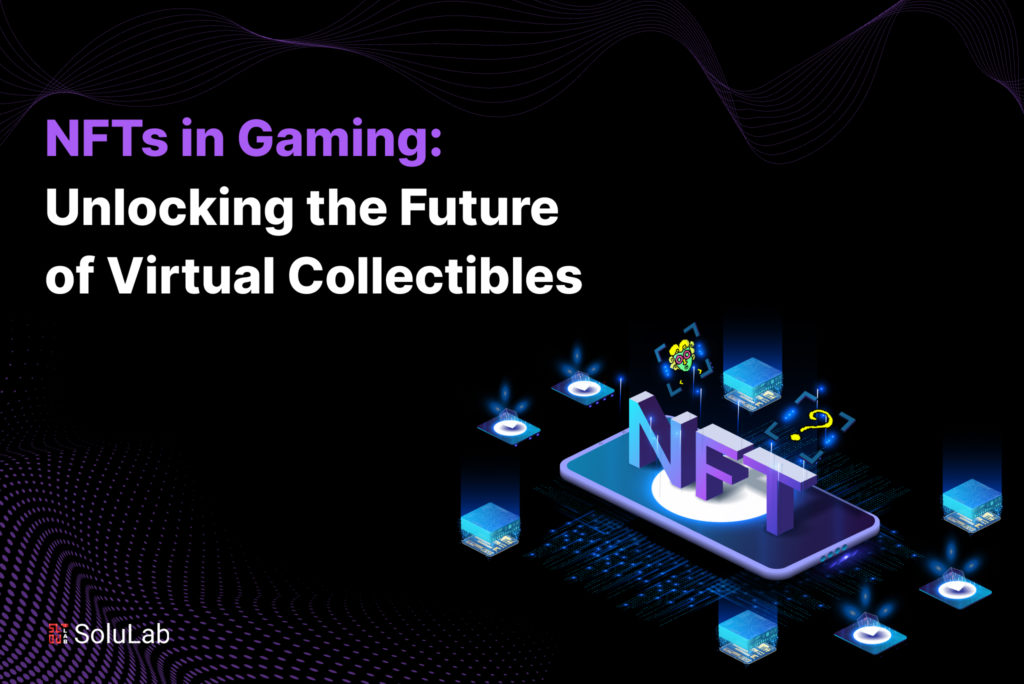
One of the main advantages of NFTs in gaming is that they allow players to truly own their digital assets. Unlike traditional in-game items, which are typically owned by game developers, NFTs give gamers full ownership rights. This enables players to trade, sell, or transfer their items across different platforms or games, providing a new level of authenticity and value.
2. Interoperability and Cross-Platform Integration
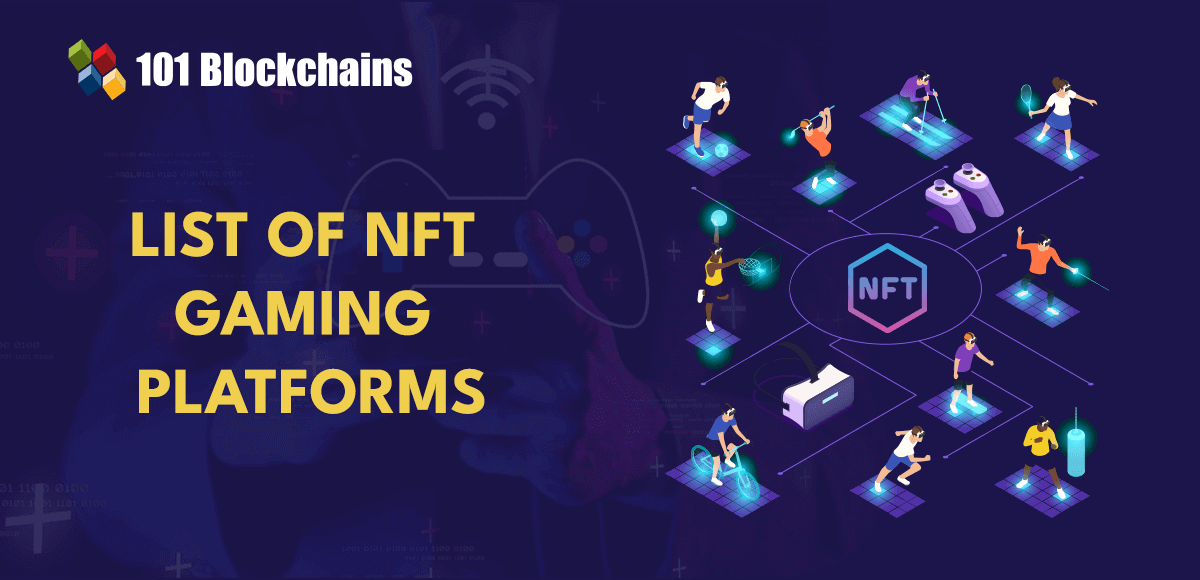
The future of NFTs in gaming lies in their ability to seamlessly integrate across multiple platforms and games. With the use of blockchain technology, NFTs can be easily transferred and used in different virtual worlds, allowing players to take their assets and achievements with them wherever they go. This interoperability opens up a whole new range of possibilities for gamers, fostering a more connected and immersive gaming experience.
3. New Revenue Streams for Gamers and Developers
NFTs present exciting opportunities for gamers and developers to monetize their skills, creativity, and game assets. Players can earn real-world value by trading or selling their NFTs, while developers can generate revenue by creating and selling unique in-game items or experiences. This shift towards a decentralized economy within gaming has the potential to empower players and developers alike, creating a more sustainable and profitable ecosystem.
Furthermore, the rise of play-to-earn gaming models, where players can earn cryptocurrency or NFTs by playing games, is likely to gain momentum. This provides a new way for gamers to monetize their time and skills, blurring the lines between work and play.
4. Community-Driven Economies and Player Engagement
NFTs have the ability to foster vibrant and engaged gaming communities. With the ownership and trading of digital assets, players become more invested in the games they play and the virtual worlds they explore. Community-driven economies can emerge, where players actively participate in the creation and growth of the gaming ecosystem. This increased player engagement not only adds value to the gaming experience but also creates a sense of community and social connection.
As the gaming industry continues to evolve, NFTs are poised to play a critical role in shaping its future. Enhanced ownership and authenticity, interoperability, new revenue streams, and community-driven economies are just a glimpse of what NFTs can bring to the gaming landscape. With their potential to empower players and revolutionize traditional gaming models, NFTs are set to reshape the way we play, trade, and connect in virtual worlds.
Challenges and Concerns
While the integration of NFTs in the gaming industry shows a lot of potential, there are also challenges and concerns that need to be addressed.
1. Scalability
One of the major concerns is the scalability of NFTs in gaming. With the increasing popularity of blockchain-based games, the demand for NFTs is growing rapidly. However, the current scalability of blockchain networks may not be sufficient to handle this increasing demand. This could lead to issues such as high transaction fees and slow processing times, which can be frustrating for gamers.
2. Ownership and Copyright

Another challenge is the issue of ownership and copyright. While NFTs allow gamers to own unique digital items, there may be legal and ethical issues surrounding the creation and ownership of these items. For example, what happens if a player creates an NFT using copyrighted content? Or if a game studio wants to revoke the ownership of an NFT due to a violation of their terms of service? These are complex issues that need to be addressed to ensure the legal and ethical use of NFTs in gaming.
Despite these challenges, it is clear that NFTs have the potential to revolutionize the gaming industry. With the right solutions and regulations, NFTs can create new opportunities for gamers, developers, and content creators. It will be interesting to see how the gaming industry evolves in the coming years with the integration of NFTs.
How NFTs and Gaming are Changing the Industry

The adoption of non-fungible tokens (NFTs) in the gaming industry has revolutionized the way players interact with digital assets. NFTs are unique tokens that can represent ownership or proof of authenticity for digital collectibles, such as in-game items, skins, and virtual land.
Increased Ownership and Control
Unlike traditional gaming assets, NFTs give players full ownership and control over their digital belongings. With NFTs, players can buy, sell, and trade their in-game items freely on blockchain-powered marketplaces. This level of ownership empowers players and provides them with true digital asset ownership.
Additionally, NFTs allow for cross-platform compatibility, meaning that players can transfer their NFTs between different games and platforms, further enhancing their ownership and giving them the flexibility to use their assets in multiple games.
New Opportunities for Developers and Artists
The rise of NFTs in gaming has created new opportunities for developers and artists to monetize their creations. Game developers can create and sell NFTs representing unique in-game items, characters, or even entire game levels. This allows them to generate additional revenue streams and engage with their player base in innovative ways.
Artists, too, can benefit from NFTs by creating and selling digital artwork or collectibles directly to their audience. NFTs enable artists to tokenize their work, ensuring authenticity, provenance, and the ability to earn ongoing royalties from resales.
1. Verifiable ownership and provenance of digital assets.
2. Increased player engagement and interaction with digital collectibles.
3. New revenue streams for developers and artists.
4. Enhanced player-driven economy and marketplaces.
5. Cross-platform compatibility and interoperability.
In conclusion, the integration of NFTs in the gaming industry is reshaping the landscape by offering increased ownership, new monetization opportunities, and fostering a more engaging and player-driven ecosystem.
Examples of Successful NFT Projects in Gaming
NFTs, or non-fungible tokens, have gained significant traction in the gaming industry. These blockchain-based digital assets have created new possibilities for gamers, enabling them to own and monetize in-game items and collectibles. Several successful NFT projects have emerged, showcasing the vast potential of this technology in gaming. Here are a few notable examples:
CryptoKitties
CryptoKitties is one of the earliest and most popular NFT projects in gaming. It allows users to collect, breed, and trade virtual cats, each represented by a unique NFT. The game's success led to significant media coverage and demonstrated the mainstream appeal of NFTs.
Decentraland
Decentraland is a virtual reality platform built on the Ethereum blockchain. Users can buy virtual land using the platform's native token, MANA, and create and monetize unique digital experiences. The land itself is represented as NFTs, allowing users to truly own and trade their virtual properties.
Axie Infinity
Axie Infinity is a blockchain-based game that combines elements of Pokémon and Tamagotchi. Players can collect and battle cute and unique creatures called "Axies." Each Axie is an NFT, and players can breed, trade, and earn in-game rewards with their digital pets. The game's Play-to-Earn model has gained significant attention and popularity.
The Sandbox
The Sandbox is a virtual world where players can build, own, and monetize their gaming experiences using NFTs. Users can create and trade virtual assets, including characters, buildings, and virtual land. The Sandbox has gained attention from both gamers and developers, fostering a thriving community within the platform.
These successful NFT projects highlight the transformative potential of blockchain technology in gaming. They have revolutionized the concept of asset ownership and the way players interact with virtual worlds. As NFTs continue to evolve, we can expect further innovation and integration within the gaming industry.
Legal and Regulatory Considerations
The intersection of NFTs and gaming has raised several legal and regulatory considerations that both developers and players need to be aware of. As the industry continues to evolve, it is important to navigate these considerations in order to protect the interests of all parties involved.
Intellectual Property Rights
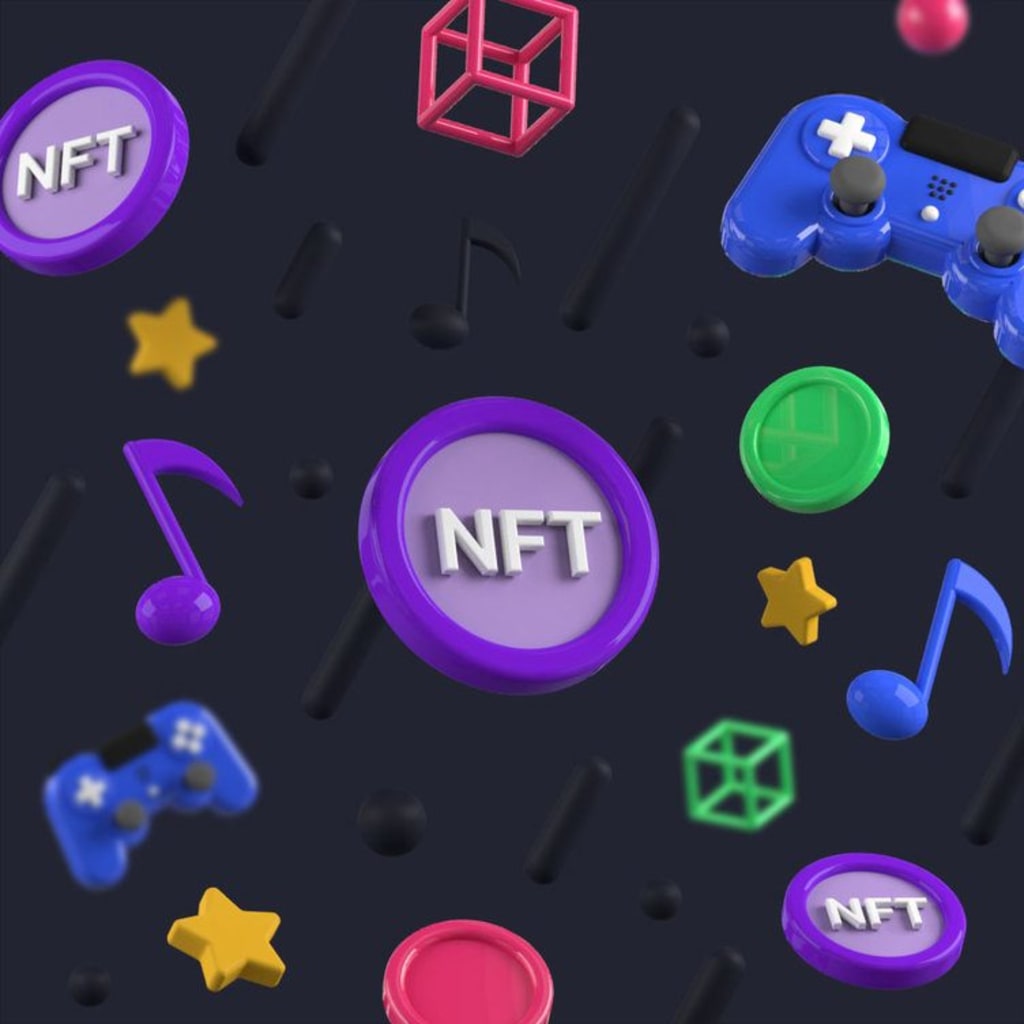
One of the primary legal concerns in the NFT gaming space is the issue of intellectual property rights. NFTs represent unique digital assets, and there may be questions about who owns the underlying intellectual property associated with these assets. Developers must ensure that they have the necessary permissions and licenses to create and distribute NFTs based on existing copyrighted material.
Furthermore, players who purchase NFTs need to be aware of the rights they acquire. The ownership of an NFT does not automatically grant the owner the right to use the associated intellectual property in any way they please. Terms and conditions should be clearly defined to avoid potential legal disputes.
Consumer Protection
As NFTs gain popularity in the gaming industry, consumer protection becomes increasingly important. Players need to be informed about the risks associated with purchasing and trading NFTs, such as potential scams, counterfeit items, or misleading descriptions. Developers have a responsibility to provide transparent and accurate information about the NFTs they create, ensuring that players are making informed decisions.
Regulatory bodies may also begin to scrutinize the NFT market more closely, particularly in terms of anti-money laundering and investor protection regulations. Developers and platforms need to be prepared to comply with these regulations to ensure the long-term viability and legitimacy of the NFT gaming industry.
Moreover, privacy concerns can arise when players are required to provide personal information to participate in NFT-related activities. Developers must implement robust data protection measures and obtain appropriate consents to protect players' privacy rights.
Conclusion:
The emergence of NFTs in the gaming industry brings about certain legal and regulatory considerations that cannot be ignored. Intellectual property rights, consumer protection, and privacy are just a few of the areas that require careful attention. By addressing these considerations proactively, developers and players can foster a legal and ethical environment that supports the growth of the NFT gaming landscape.
What are NFTs?
NFTs, or non-fungible tokens, are unique digital assets that can represent ownership or proof of authenticity of a digital item or collectible. They are built on blockchain technology and have gained popularity in the art, gaming, and entertainment industries.
How can NFTs be used in the gaming industry?
NFTs can be used in the gaming industry in various ways. They can represent rare in-game items, such as weapons or skins, that can be bought, sold, and traded between players. NFTs can also be used to create unique virtual worlds, where players can own and trade virtual real estate, artwork, or even entire game characters.
What are the benefits of using NFTs in gaming?
Using NFTs in gaming brings several benefits. It allows players to truly own their in-game items, as the ownership is recorded on the blockchain. This means that players can freely buy, sell, or trade their items outside of the game. NFTs also introduce scarcity and rarity to digital items, making them more valuable and collectible. Additionally, NFTs can provide new revenue streams for game developers through sales of exclusive items or through fees generated from secondary market transactions.
How are NFTs changing the gaming industry?
NFTs are changing the gaming industry by giving players more control over their in-game items and introducing new economic models. They enable a player-driven economy, where players can buy, sell, and trade assets with real-world value. NFTs also foster player engagement and retention, as players have a financial incentive to invest time and money into the game. Moreover, NFTs can create opportunities for cross-game interoperability, allowing players to use their items across multiple games.
Are there any challenges or drawbacks to using NFTs in gaming?
While NFTs offer many benefits, there are also challenges and drawbacks to consider. One challenge is the environmental impact of blockchain technology, as it requires significant amounts of energy for transaction processing. Another challenge is the potential for scams and fraud in the NFT space, as there have been cases of fake or stolen artwork being sold as NFTs. Additionally, the volatility of cryptocurrency prices can affect the value of NFTs, which may deter some players from investing in them.
What are NFTs?
NFTs, or non-fungible tokens, are unique digital assets that use blockchain technology to authenticate and establish ownership of digital items, such as art, music, and virtual goods in gaming.
How are NFTs different from cryptocurrencies?
NFTs and cryptocurrencies are both built on blockchain technology, but they serve different purposes. While cryptocurrencies like Bitcoin are fungible and can be exchanged for one another, NFTs are unique and represent ownership of a specific digital asset.
Blur: NFT | Blur: NFT login | Blur: NFT connect | WalletConnect | Traders | What Is Blur Crypto
2022-2024 @ Nfts and gaming the emerging landscape of crypto collectibles in the gaming industry